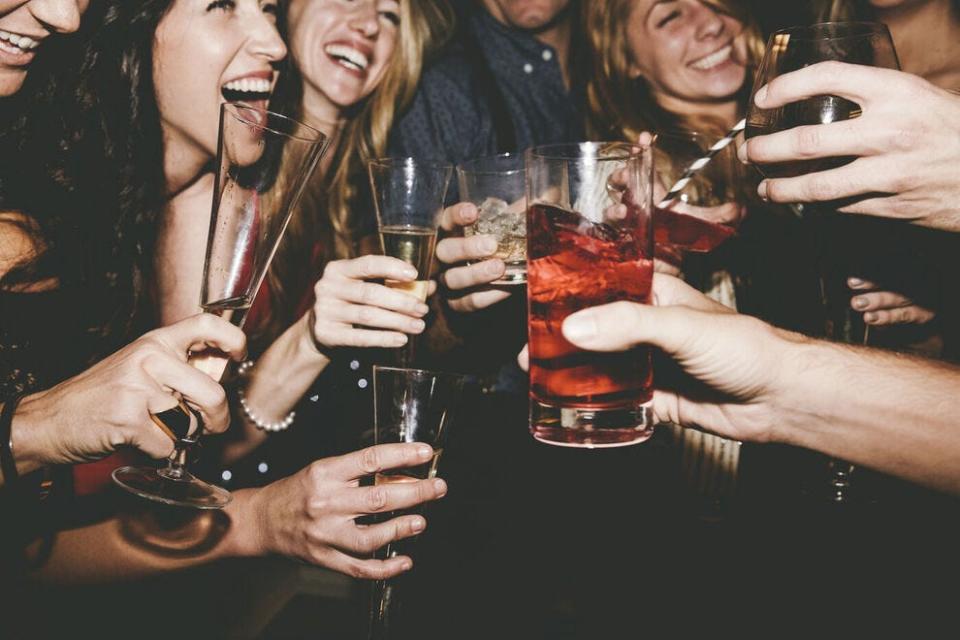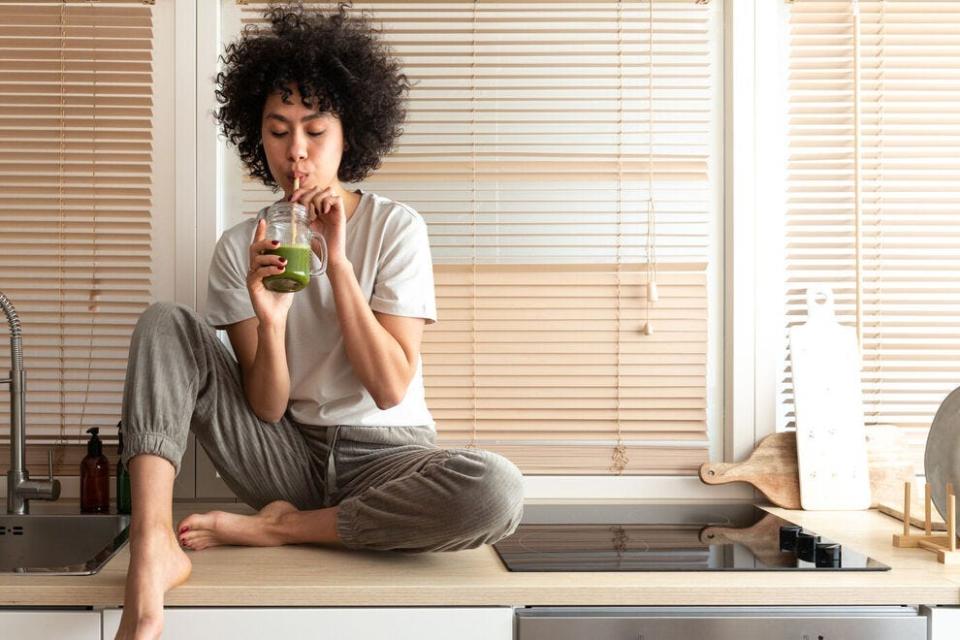How to cure a hangover during the holiday season: Tips from TikTok, experts
The holiday season is here, which means attending several themed parties, family get-togethers and then eventually ringing in the New Year at midnight.
Following each of these events, some unfortunate souls are left with one of the worst gifts you can receive — a hangover.
Your head is pounding. You're a little nauseated. All you want to do is chug an entire gallon of water and sleep in a dark room for 48 hours.
What causes hangovers?
According to the National Institute on Alcohol Abuse and Alcoholism, hangovers are the result of heavy drinking and is metabolized into acetaldehyde, a substance that's toxic at high levels. It is also characterized by the onset of several not-so-fun symptoms:
Mild dehydration
Disrupted sleep
Gastrointestinal irritation
Inflammation
Acetaldehyde exposure
Mini-withdrawal
The institute notes that it can be hard to predict how many drinks it takes to spark a hangover, as usually depends on the person.
"Any time people drink to intoxication, there is a chance they could have a hangover the next day," the institution explains.
Why exactly do we get hangovers? What causes the feeling of a hangover?

According to the Mayo Clinic, various factors may contribute to a hangover and the icky feelings that come with it. For instance:
Alcohol is a diuretic, which means it causes increased urination. That, in turn, can cause dehydration, which explains the thirst, fatigue, dry mouth and headaches you wake up with.
Alcohol triggers an inflammatory response from your immune system. Your immune system may trigger certain agents that commonly produce physical symptoms, such as an inability to concentrate, memory problems, decreased appetite and loss of interest in usual activities.
Alcohol irritates the lining of your stomach. Alcohol increases the production of stomach acid and delays stomach emptying.
Alcohol can cause your blood sugar to fall. If your blood sugar dips too low, you may experience fatigue, weakness, shakiness, mood disturbances and even seizures.
Alcohol causes your blood vessels to expand, which can lead to headaches.
Alcohol can make you sleepy, but it prevents deeper stages of sleep and often causes awakening in the middle of the night. This may leave you groggy and tired.
How long do hangovers usually last?
Hangover symptoms peak when the blood alcohol concentration in the body returns to about zero, with the National Institute on Alcohol Abuse and Alcoholism adding that symptoms can last 24 hours or longer.
At what age do hangovers get worse?
In an interview with Cosmopolitan Magazine last year, Dr. Giuseppe Aragona, GP and Online Doctor for PrescriptionDoctor.com, explained by hangover get worse as we age.
"There are a number of factors which make drinking, even at 'normal' levels, increasingly risky as you age," Aragona told reporters. "As you get older your ability to metabolize alcohol declines, this decline is usually found from your late twenties and into your thirties."
TikTok users share their tips for curing hangovers
You've probably heard of a few so-called hangover remedies, or even tried them yourself, but what about some unconventional methods? From buckets of ice water to the face to shots of pickle juice, TikTok users have been eager to share their hacks for combating a hangover.
Check out some of these top tips and don't forget to bookmark some of them before your next night out:
Health experts give additional tips on curing hangovers

What about the tried-and-remedies from experts? Over in Boston, Harvard Health experts detailed their seven ways of curing an unwanted hangover, such as:
Drinking fluids - Drinking water or a sports drink when you wake up is a great start to combating the symptoms of a hangover. Even having a glass the night before can help ward off dehydrating effects.
Getting some carbohydrates into your system - Many people forget to eat when they drink, further lowering their blood sugar. Toast and juice is a way to gently nudge levels back to normal.
Avoiding darker-colored alcoholic beverages - Experiments have shown that clear liquors, such as vodka and gin, tend to cause hangovers less frequently than dark ones, such as whiskey, red wine, and tequila.
Taking a pain reliever but not Tylenol - Aspirin, ibuprofen (Motrin, other brands), and other nonsteroidal anti-inflammatory drugs (NSAIDs) may help with the headache and the overall achy feelings. NSAIDs, though, may irritate a stomach already irritated by alcohol.
Drinking coffee or tea - Caffeine may not have any special anti-hangover powers, but as a stimulant, it could help with the grogginess. Just don't mix the two!
Taking B vitamins and zinc - According to a study published in The Journal of Clinical Medicine, they found that people whose food and beverage consumption contained greater amounts of zinc and B vitamins had less severe hangovers.
"Hair of the dog" - Drinking to ease the symptoms of a hangover is sometimes called taking the hair of the dog, or hair of the dog that bit you. The notion is that hangovers are a form of alcohol withdrawal, so a drink or two will ease the withdrawal. However, this method doesn't help you fully recover and just perpetuates a cycle.
This article originally appeared on Fort Myers News-Press: All about hangovers: What causes them, how experts say to cure them

